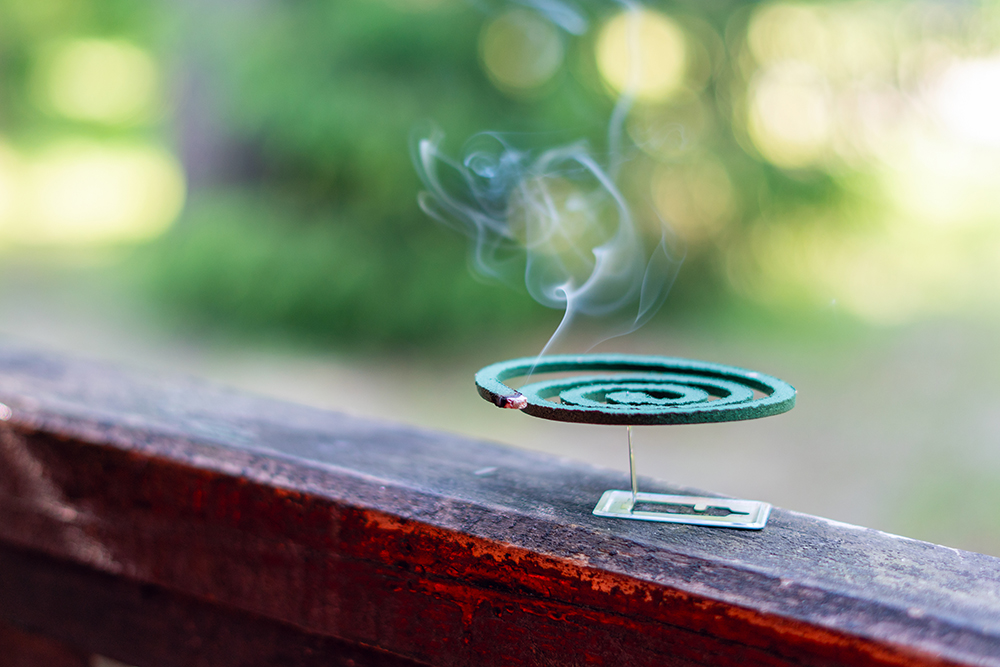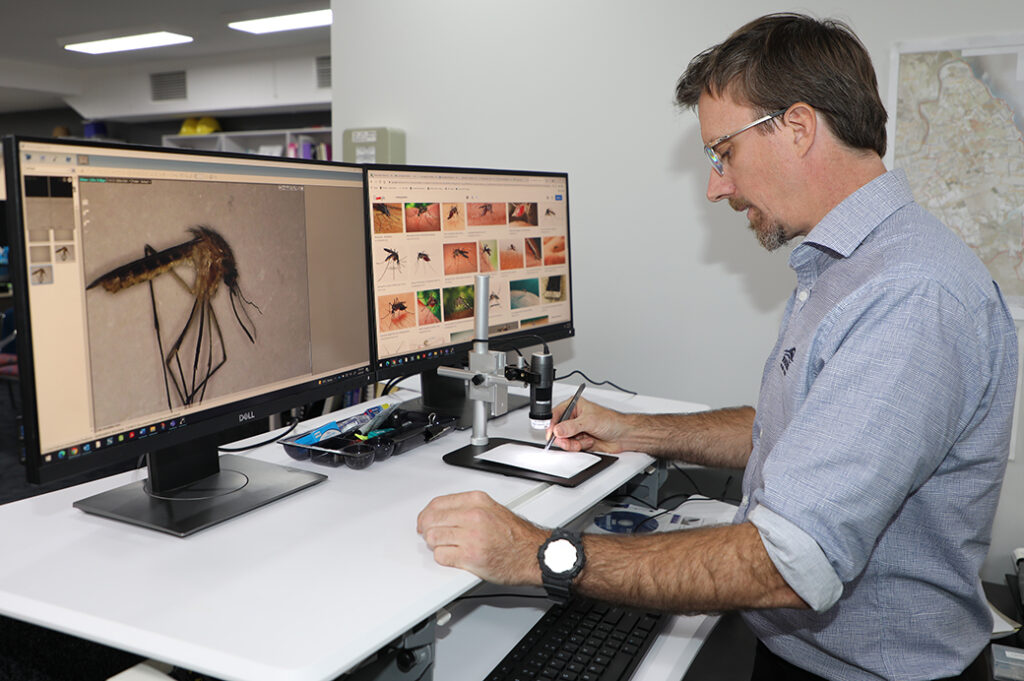
A CQUniversity professor is warning residents that mosquitoes are on the move after recent wet weather across the region.
Professor and entomologist Andrew Taylor-Robinson is an expert in mosquito-transmitted diseases and said the widespread La Nina weather event was bringing a summer swarm of mozzies along with it.
“A combo of heavy rain, sodden ground and already brimming rivers is manna from heaven for mosquitoes,” he said.
“As the heat of summer arrives, mozzie season reaches its peak.
“The warm temperatures make them pass through their life cycle faster, so more eggs are laid and more hatch.”
Professor Taylor-Robinson said the Bundaberg Region was home to a number of mosquito species, the main being the Aedes notoscriptus or the Australian backyard mosquito.
“This is the major domestic pest species in eastern Australia,” he said.
“It readily bites humans by day in shaded areas but also feeds during evening, night and early morning.”
Beyond being an irritating pest, Professor Taylor-Robinson said mozzies could carry disease-causing pathogens.
He said dengue was the most significant mosquito-borne viral disease globally.
“In Australia, thankfully very few locally acquired cases are reported (usually in Far North Queensland), transmitted by Aedes aegypti.
“However, it is worth considering that many of the other mozzie species throughout Queensland pose more of a threat than just an itchy bite.
“This includes Aedes notoscriptus, the Australian backyard mosquito.”
Professor Taylor-Robinson said to help reduce the threat of disease-carrying mosquitoes, local authorities, including Bundaberg Regional Council, were working with state-of-the-art technology.
“Local authorities in many parts of Queensland, as well as other states and territories, routinely undertake surveillance to identify and monitor numbers of mozzies and to detect mosquito-borne pathogens,” he said.
“In regard to the important mosquito surveillance work of Bundaberg Regional Council, the microscopical examination undertaken by the Environmental Health Services team is a cutting-edge identification system.
“This provides an early warning mechanism at a very local scale to detect mosquito species that are vectors of viruses of known or potential public health concern.”

Professor Taylor-Robinson said all mosquitoes needed still or stagnant water to complete their life cycle.
He said removing potential breeding sites in your yard and draining any standing water near your home was just some of the ways to reduce mosquitos.
“In order to reduce the prospect of you providing a gourmet blood meal, it is sensible to remind ourselves of the familiar yet excellent advice on how to avoid being bitten,” Professor Taylor-Robinson advised.
Professor Taylor-Robinson’s tips for a mozzie-free summer
• Keep mozzies from entering indoors – install or repair insect screens on doors and windows, especially in bedrooms;
• Keep mozzies away outdoors – sleep under a mosquito net when camping in a mozzie hot spot;
• Stop mozzies biting – apply an effective chemical repellent containing either DEET or Picaridi or try a natural repellent, notably oil of lemon eucalyptus (Eucalyptus citriodora);
• Wear the right clothes outdoors – slip on loose-fitting clothing, light-coloured and long if possible;
• Make yourself less appealing – plug in an insecticide vaporiser (indoors) or burn a mosquito coil (outdoors).
Other news:







